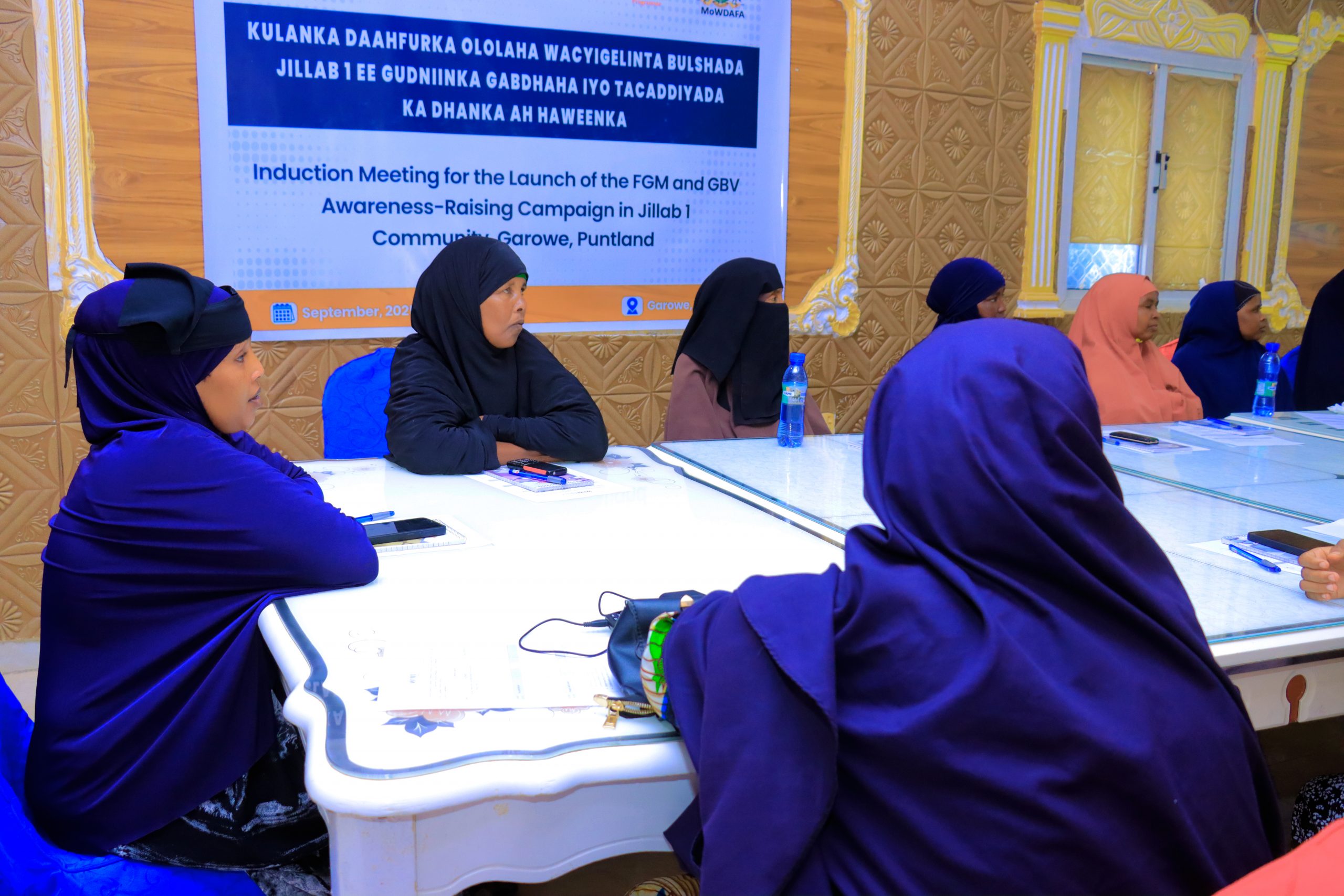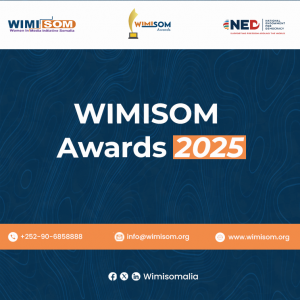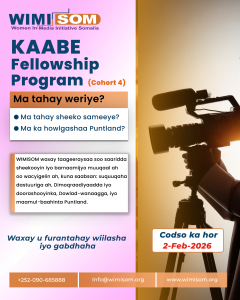WIMISOM launched an induction workshop in the Jillab 1 community in Garowe as part of a project designed to increase awareness and knowledge about the harmful effects of Female Genital Mutilation (FGM) and Gender-Based Violence (GBV). The workshop aims to strengthen the community’s ability to challenge harmful perceptions and practices.
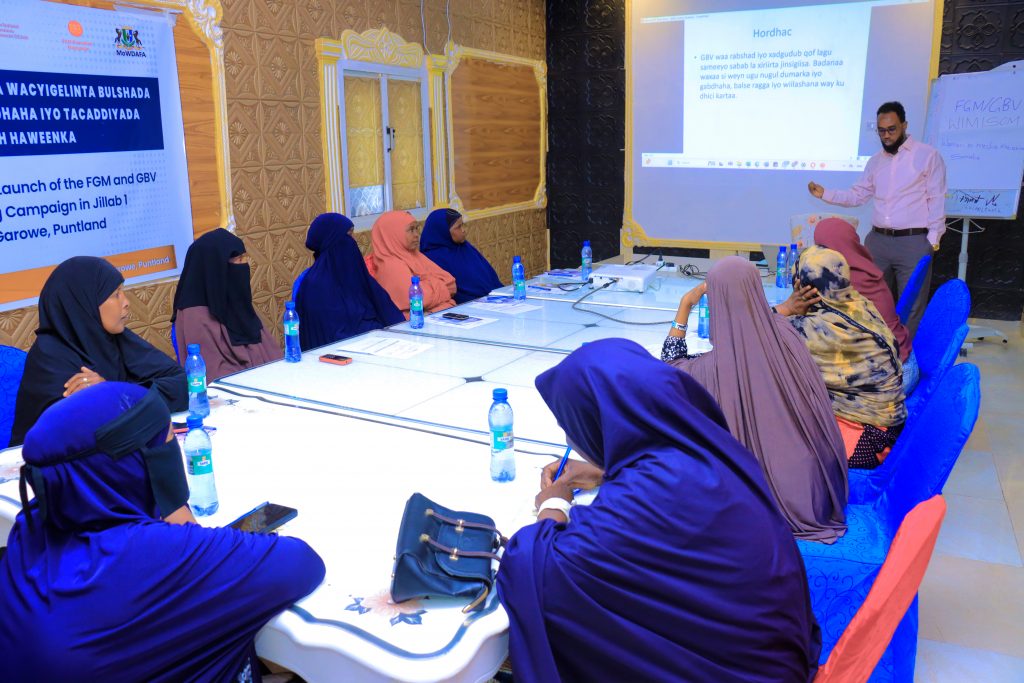
This workshop targeted ten female leaders from the Jillab 1 IDP camp. These women are stepping forward as champions of change to confront FGM and GBV. Their selection was based on their integrity, empathy, strong communication skills, and commitment to the well-being of women and children. The group is diverse, including young female leaders, as well as respected elder women.
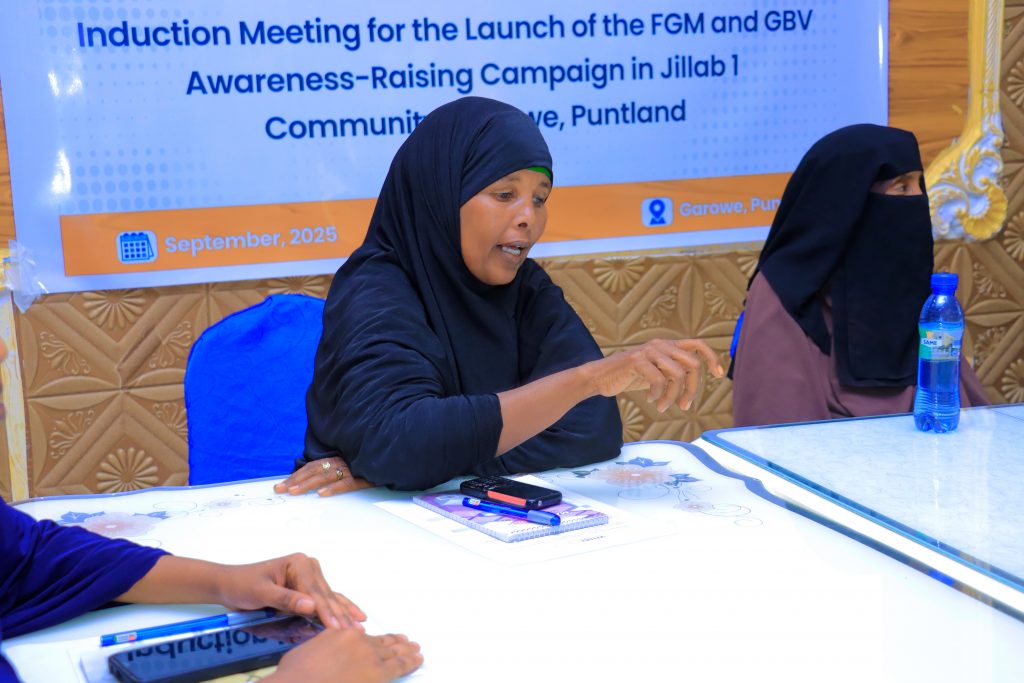
The sessions were designed to equip these women leaders with the knowledge and skills needed to raise community awareness and inspire attitude change. The workshop focused on strengthening their understanding of the physical, emotional, and social impacts of FGM and GBV, enhancing their roles in outreach, communication, and mobilization, building their confidence to speak openly about sensitive issues, and teaching them ethical ways to engage with families and community leaders. Through interactive discussions, role-plays, and group exercises, the participants practiced communication techniques and learned practical ways to engage their community. One of the participants, Farhia Abdirahman, shared that the training helped her overcome the fear of addressing a sensitive topic. “Before this workshop, I felt that FGM was too difficult a subject to speak about. Now I understand not only why I must speak up, but also how to do it in a way that people listen and respond,” she said.
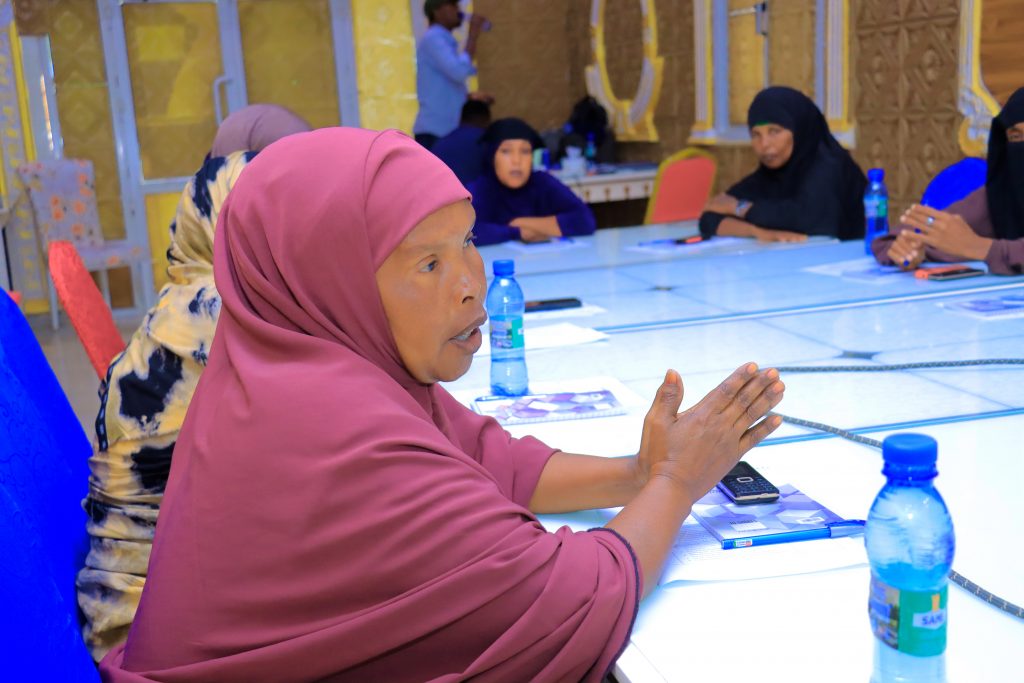
These ten champions will engage in regular awareness-raising activities throughout the project, including household visits, outreach, and mobilization efforts. They will work in pairs to share personal stories of the dangers of FGM and GBV, and engage the wider community through forums, community meetings, and other gatherings.
Monthly follow-up meetings will be organized to allow the women to reflect on their activities, share challenges and successes, and plan for the months ahead. These sessions will help sustain the momentum of their work and create a sense of solidarity among the champions. For participant Jija, the training is just the beginning of a longer journey. “My dream is to see Jillab free from FGM and violence. If we work together, one household at a time, we can reach that goal,” she said. By the end of the induction, participants expressed both determination and hope.
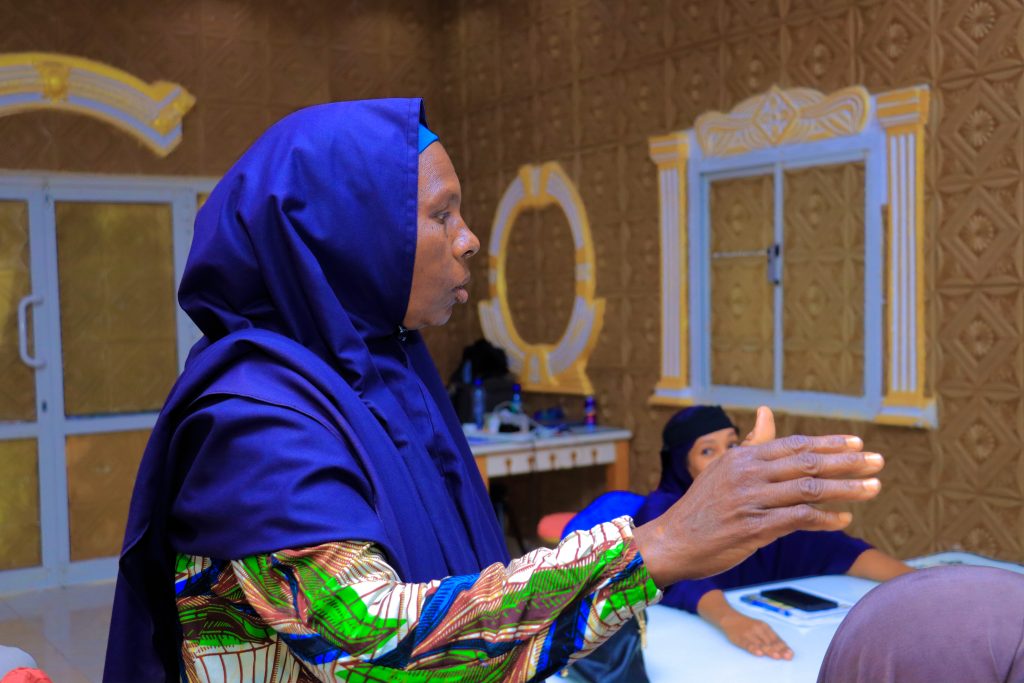
Many spoke about the need to break the silence and take ownership of the solutions. As Sowdo hussen put it, “Change must come from within the community. We are no longer waiting for someone else to fix this problem. We are the ones who will protect our daughters.” This workshop marks an important step forward, with empowered women leading the way toward safer and healthier futures for women and girls.
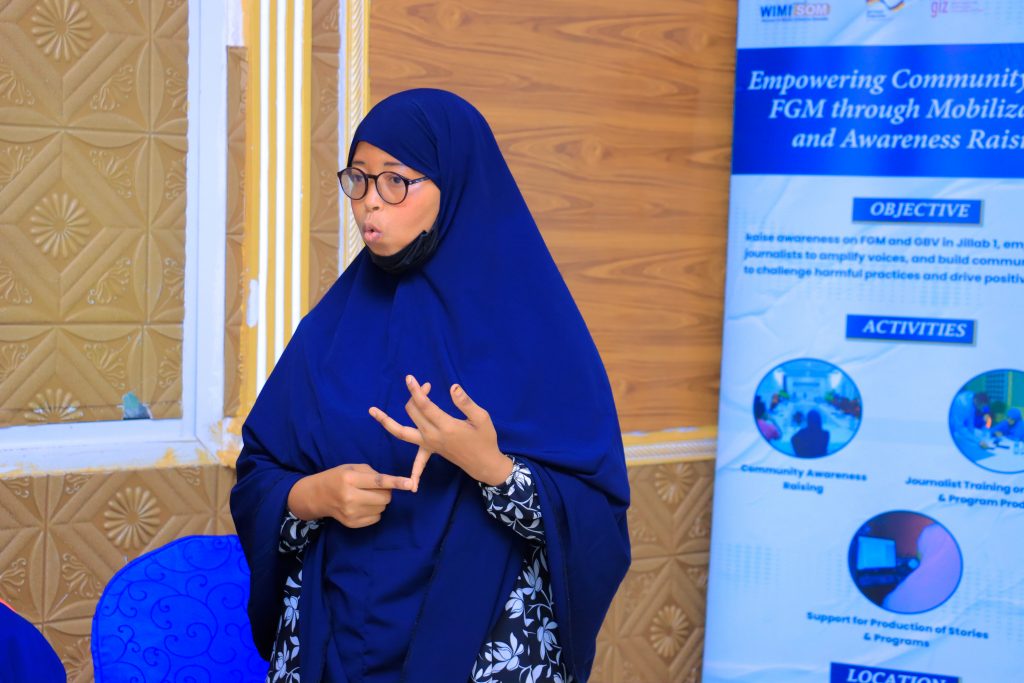
This activity is part of the Empowering Community to End FGM through Mobilization and Awareness Raising project implemented with support from GIZ Somalia.

